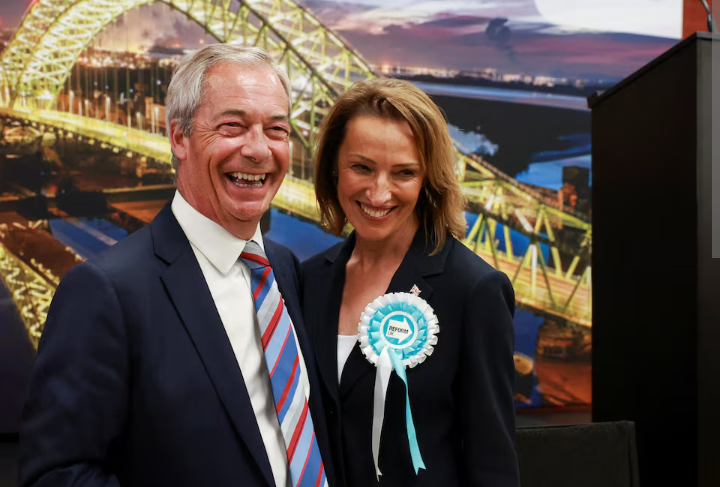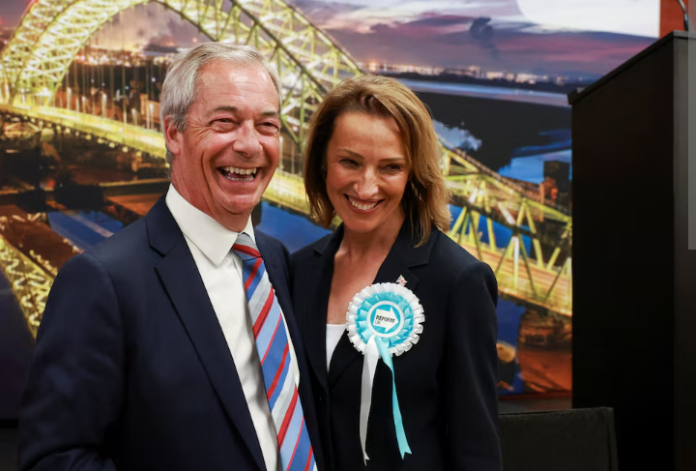In a stunning political twist that could reshape Britain’s future, Nigel Farage’s Reform UK party has pulled off an unexpected string of victories, winning a hotly contested parliamentary seat, a major mayoral race, and several local council positions in England. The message is clear: the traditional political giants—Labour and the Conservatives—are on shaky ground.
The most dramatic result came from the Runcorn and Helsby by-election, where Reform UK snatched a win by just six votes after a full recount. This is a seat Labour had comfortably won in last year’s general election with a nearly 15,000-vote lead. With this razor-thin victory, Reform now holds five seats in Parliament, a clear sign of its growing influence.
Nigel Farage, the face of Reform UK and a long-time champion of Brexit, described the night as a game-changer. “Labour’s support has collapsed in its heartlands, and the Conservatives are toast,” he declared. “You’re watching the end of a party that’s existed since 1832.”
But that’s not all.
Andrea Jenkyns, a former Conservative minister who recently switched to Reform, made headlines by winning the mayoral race in Greater Lincolnshire. She now oversees a region with over one million residents, making her the most powerful figure in Reform’s political ranks so far. In her victory speech, she promised to crack down on “soft touch Britain” policies, calling for tougher immigration measures and a focus on putting British citizens first.
Early local election results also show Reform leading the pack in council seat counts, although only a fraction of the more than 1,600 seats have been declared so far.
What’s fueling this political shift?
The Labour Party, under Prime Minister Keir Starmer, is facing growing dissatisfaction. Despite winning a landslide victory less than a year ago, his government has seen the fastest drop in popularity for any newly elected administration. Voters are frustrated with tax hikes and cuts to elderly benefits, which were introduced to repair the financial mess left by the previous Conservative government.

Meanwhile, the Conservative Party, now led by Kemi Badenoch, is still reeling from its historic defeat last year. Its attempts to regain public trust are proving painfully slow. Even party insiders admit the road to redemption will be long.
Polling expert Keiran Pedley summed it up: “Reform UK looks like the real deal this morning. But now they’ll have to prove they can deliver on their promises.”
Once dismissed as a fringe movement focused solely on immigration, Reform UK is now positioning itself as the primary challenger to Britain’s political establishment. With growing grassroots support and high-profile wins, the party is laying down roots in local governance—and it’s not slowing down anytime soon.
Could this be the beginning of a major realignment in British politics? All signs point to yes.



